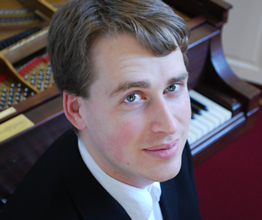There is a megalovillage joining south Asheville to the more southern Asheville Regional Airport. The three communities – Arden, Skyland and Fletcher – have grown up in the shadow of the larger city. There is a tendency to pronounce it altogether (“Ardenskylandfletcher”) because the most we ever see of the whole thing is from busy, four-lane and hurrying Rt. 25, where we can find, among other things, the Arden Presbyterian Church where Dewitt Tipton once again staked out the musical high ground for the second time in a week. Just how we get to this particular site for a choral concert of Mozart seems a bit of a mystery until you are actually inside the building. Then everything makes sense. As a huge, cavernous hemisphere with a flying proscenium, it seems the ideal place for – well, church! But more to the point, it’s the ideal place for a large ensemble with the need of dynamic envelope and a live room.
Seems fair.
Even more specific, a volunteer chorus of 88, one pipe organ, and a chamber ensemble of 27 made up from members of the Asheville Symphony Orchestra played Mozart all night. The band included strings, bassoon, clarinet, trumpet, trombone and timpani. Assistant Director and accompanist Steven Williams performed at the pipe organ and Tipton, as Director, put the whole program together and conducted. The chorus roster is 104 voices, impressive for an all-volunteer group, but it was trimmed down this night due to autumn viruses and various ailments. The lead soprano was replaced at the last minute.
First on the program was the Te Deum in C, K.141. The form is an early Christian hymn of praise with dubious and hazy lineage dating back to the 4th century. According to the program notes, “The hymn follows the outline of the Apostle’s Creed mixing a poetic vision of the heavenly liturgy with its declaration of faith.” Mozart set the text to music in 1769 when he was age thirteen. Even at that tender age, the kid had chops. The ASO Chorus put nary a note wrong, and the whole was delivered with a stunning professional sound. At the conclusion, Tipton stepped away from the podium and eventually gestured with a smile toward the audience to indicate “the thing is done now, you can clap.” The audience, either shocked by the performance or confused about protocols while sitting in a church, finally snapped out of the fog and approved with gusto.
Once I saw a program from a church recital. It included all the standard information but added this very generous and clear sentence as guide: “Applause is an appropriate form of thanksgiving.” Remember that.
Next was the Andante in F, K.616, with Steven Smith at the organ alone. Composed in the final year of Mozart’s life, it is one of three works intended for a mechanical organ or musical clock. From a log entry dated May 4, 1791, the piece is “an andante for a cylinder in a small organ.” There was nothing too fancy on the stops, and two manuals was the rule. Polyphonic, transparent, and very much on the move, it still brought back repeated themes to keep the listener engaged. A delight.
Yes, the audience did applaud and Smith took a bow.
Then everybody jumped in the pool for K.615, the Requiem, Mozart’s final work – with a little help from Süssmayr, maybe. All the mystery surrounding the composition of the piece is interesting, but when you listen to the thing, all that soap opera goes far away. The soloists were soprano Janis Bryant, alto Jane McCoy, tenor Alan Reed, and bass Jonathan Ross. All delivered their parts on pitch, in tune and at the right time. So too the ASO chorus, basking in a room big enough to shout and not be penalized. The tricky Kyrie movement, with a theme that returns at the end, defines how well a group is prepared; Tipton has done a wonderful job working with what walks in the door and imprinting his musical ideas in the execution. Appearing as piano accompanist for the Keowee Chamber Music Festival on October 29 in Biltmore is one more example of his versatility, talents and command of style.
The Asheville Symphony Chorus will perform with the Symphony during holiday pops concerts on December 9 and 10 and in April will present Beethoven’s Mass in C. The Chamber Chorus will present Langlais’ Messe Solennelle (with strings and organ) and Schubert’s Mass in G next June.
And yes, at the end the audience stood as all players were acknowledged with robust applause.











